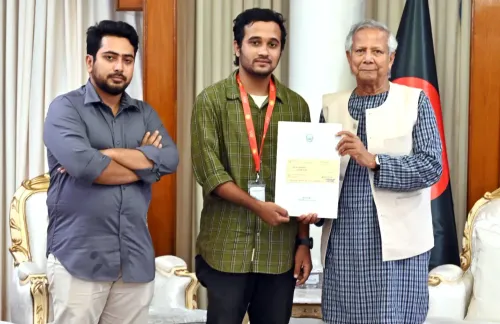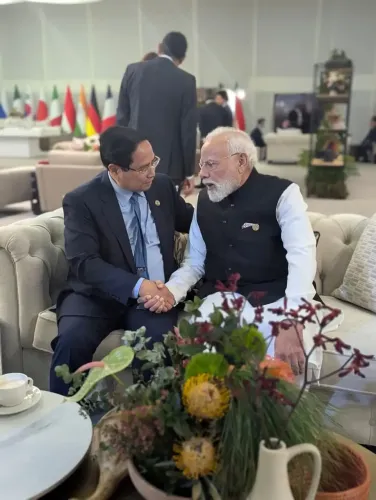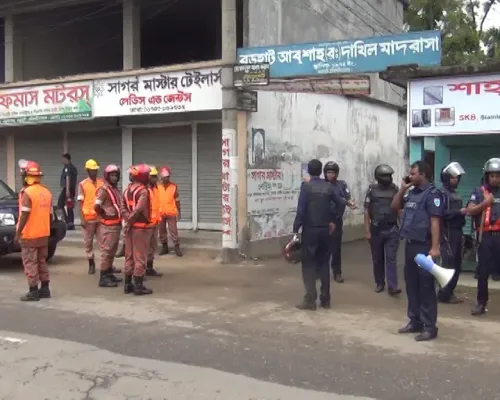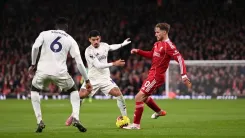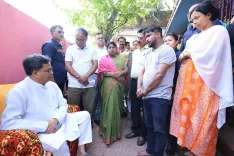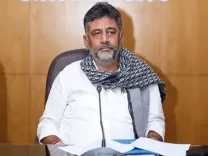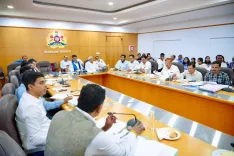Why does the US defend Trump’s outreach to Pakistan while saying ties with India are 'good'?
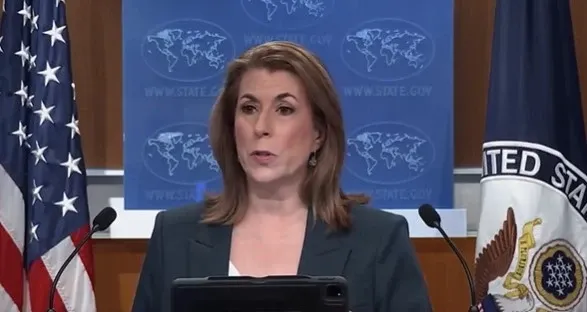
Synopsis
Key Takeaways
- Diplomatic Engagement: Effective communication is crucial for maintaining strong international relationships.
- Counter-Terrorism Cooperation: The US and Pakistan reaffirm their commitment to combat terrorism.
- Regional Stability: Collaborative efforts are essential for regional peace and security.
- Leadership Influence: Military leaders play a crucial role in shaping diplomatic ties.
- Peace Mediation Claims: Claims of mediation in international conflicts can be contentious and disputed.
New York, Aug 13 (NationPress) US State Department Spokesperson Tammy Bruce asserted that US relations with India remain "good" while justifying Washington’s outreach to Pakistan, highlighting the advantages of a president who engages in dialogue with all parties.
“Our relationship with both nations is as it has been, which is good,” she remarked on Tuesday when questioned if US President Donald Trump's outreach to Pakistan’s military chief Asim Munir would jeopardize his ties with Prime Minister Modi.
“That is the advantage of having a president who knows everyone and communicates with all, which enables us to bridge differences,” she explained as she defended Trump's diplomatic efforts towards Pakistan.
“It’s evident that our diplomats are dedicated to both nations,” she added.
Bruce did not address another part of the reporter’s inquiry regarding whether Trump's apparent developing rapport with Munir “will result in increased US aid to Pakistan and an escalation in arms sales.”
However, she mentioned the US-Pakistan dialogue on counter-terrorism that took place earlier that day in Islamabad.
The US and Pakistan “reaffirmed their mutual commitment to tackling terrorism in all its forms and manifestations” during the meeting, she stated.
They “explored ways to enhance collaboration to combat terrorist threats, which I believe is beneficial for the region and the world,” she noted.
Trump had hosted Munir, who has significant influence over Pakistan’s civilian governance, at a White House luncheon in June, expressing gratitude for his role in preventing conflict escalation.
Munir returned to the US last week to attend an event in Tampa, Florida, to bid farewell to General Michael Kurilla, who concluded his tenure as the commander of the US Central Command (CENTCOM), and to welcome his successor, Admiral Brad Cooper. CENTCOM oversees Pakistan, as well as Central and West Asia.
Trump has claimed responsibility for mediating a resolution to the conflict in May, which escalated following India's launch of Operation Sindoor against Pakistan-based terrorist organizations after an attack by The Resistance Front, a subgroup of the Pakistan-protected Lashkar-e-Tayiba, in Pahalgam in April.
Munir has echoed these sentiments and even nominated Trump for the Nobel Peace Prize.
India has refuted any claims of Trump’s mediation, asserting that the ceasefire was initiated by Pakistan’s Director General of Military Operations, Major General Kashif Abdullah, who contacted his Indian counterpart, Lieutenant General Rajiv Ghai.
Bruce, who has been nominated to become the US deputy permanent representative to the UN, stated that the US had averted “a conflict that could have escalated into something extremely severe.”
She mentioned that “there was immediate concern and prompt action from the Vice President, the President, and the Secretary of State, to address the unfolding situation.”
Trump, Vice President JD Vance, and Secretary of State Marco Rubio worked diligently to “halt the attacks and to unite the parties for a sustainable resolution... and it’s a proud moment demonstrating Secretary Rubio's commitment,” she concluded.

